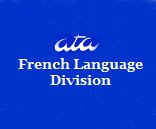 |
| Alan Dages |
SDL sponsors several webinars a month aimed at their client base of translation companies and freelance translators. These presentations began in order to instruct users on how to get the best performance from SDL's computer aided translation products (Trados and SDLX) and have now expanded to include discussions on industry trends. The Global Financial Intelligence Report, held on January 14 of this year, falls into the latter category. The format was a three-person panel that you could hear but not see, moderated by a fourth person. Katherine Weller, as the SDL representative, opened the program by citing the SDL mission statement and some figures expressing SDL’s predominant role in the computer aided translation business. Ms Weller also explained how the event’s 250 listeners could pose questions to the panelists by using a chat function. She then introduced Mary Ellen Kelly, the moderator, by describing her background.
Ms Kelly has been a Vice President of Wealth Management at Morgan Stanley Smith Barney since 1997. She has concurrently been a Freelance Translator of financial and legal publications from Spanish, Portuguese, and Italian into English. Previously, she was Latin American Marketing Director of a communications equipment manufacturer and distributor in suburbanPhiladelphia
Marion Greenfield is currently a freelance translator of Spanish, Portuguese and French into English who also works as a translation industry consultant. She has translated inNew York New York Circle
Ms Kelly has been a Vice President of Wealth Management at Morgan Stanley Smith Barney since 1997. She has concurrently been a Freelance Translator of financial and legal publications from Spanish, Portuguese, and Italian into English. Previously, she was Latin American Marketing Director of a communications equipment manufacturer and distributor in suburban
Marion Greenfield is currently a freelance translator of Spanish, Portuguese and French into English who also works as a translation industry consultant. She has translated in
Unlike most financial translators, Marion had a background neither in finance nor in translation when she started out. Having majored in Spanish, she began her career as an in-house translator for three New York Marion
Marion’s advice to beginning freelancers is to contribute to their ATA regional chapters and language divisions by volunteering their time and writing articles. Later, as they gain experience, they can dramatically enhance their reputation by making presentations at ATA conferences.
Stephanie Tramdack-Cash was the next panelist to take the podium. Unlike Marion Bryn Mawr College University of Pennsylvania Wharton School Philadelphia , New York Montreal University of Illinois France Belgium Luxembourg
Ms Kelly asked Stephanie what has been the new client trend since 9/11, to which she replied new regulations aimed at encouraging financial institutions to know their customers better. Money laundering and corporate governance are two other areas receiving new regulation, and typify a trend to re-regulation, which could create a lot of translation work. Mutual funds are also a current hot topic. When asked to cite the biggest obstacle to the new financial translator, Stephanie cited “the disease of perfectionism” which she defined as striving so hard to do your best that it results in inertia. As further advice, she suggested attending the Université d'été to be held this summer in Luxembourg City
Anne Connor was the last panelist to speak. Anne is currently President of the Delaware Valley Translators Association. Since 1991, she has been a freelance Italian-to-English and Spanish-to-English translator specializing in the business, legal and medical fields. Before that, she worked as a staff translator for the commodities trading division of a multinational corporation, and as an international marketing specialist for a major food producer.
When asked about the industry trends since 9/11, Anne described how she started doing financial translations of documents produced by a big lawsuit involving an Italian multinational corporation, which kept her busy for years. She bought SDLX to manage the heavy workload and then purchased Trados when SDLX was acquired by SDL. She was first asked to edit the translations of others done on Trados, and learned to use the tool gradually.
By way of advice to those interested in financial translation, Anne suggests they enter their profile in the ATA and DVTA databases, which are consulted by prospective clients. She also suggested attending conferences and seminars offered by your regional chapter. Over the past five years, the DVTA has invited experts at least twice a year to speak at its seminars for translators and interpreters. She advises beginners to be flexible about working on weekends and evenings, saying that was a way of fostering an ongoing relationship with project managers. Anne believes it still pays to send your résumé to language services providers, a task made easier by online application forms.
A short question and answer period followed with listeners submitting their questions in writing. Marion CAT tools to translate annual reports. She uses Trados to translate highly repetitive central bank annual reports and achieves an output of up to 10,000 words a day at times. Marion
In the author’s opinion, this webinar was a bit limited by its hour-long format. Beginning financial translators could glean possible strategies from the three panelists’ varied backgrounds, and the advice they provided. Mary Ellen Kelly as moderator kept the discussion moving on schedule and posed the necessary questions. This was made easier by the panelists’ efforts to give succinct, targeted responses. They also offered to answer additional questions by email. In general, the webinar lived up to its promise and SDL should be commended for expanding the scope of these presentations.
Alan Dages
0
Alan Dages
0





It might look like an unnecessary cost increase at first glance, but I'd always recommend using language professionals for financial translation, the risk you run without them is sure to cost you much more in the end.Luckily, I can't see machines taking over the jobs of human translators in the near future, as they have done with so many other professions .
ReplyDelete